Johns Hopkins University
Baltimore, MD
Baltimore, MD
Baltimore, MD
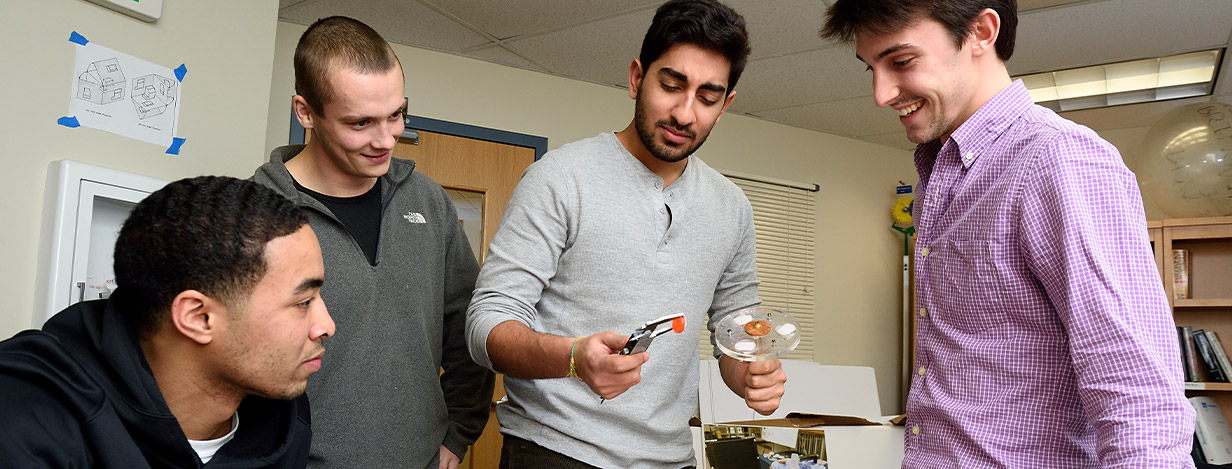
Empowering undergrads to develop innovative solutions for improving health care
As America’s first research institution, Johns Hopkins University is known worldwide for groundbreaking advances in everything from technology to medicine. We’re a leader in health sciences education in part because of a focus on innovation, collaboration with clinicians and industry partners, and an emphasis on hands-on, research-based learning.
Whether in the Biomedical Engineering, Biology, or any other program (pre-health is an advising track, not a major), undergraduates at Hopkins thrive in a flexible, interdisciplinary approach that emphasizes experiential learning and collaboration. With access to world-class facilities and large-school resources, pre-health students at Hopkins are dedicated to finding solutions to the world’s most pressing health issues. They’re developing the techniques, procedures, and policies that shape the health care industry and impact patient care—all while undergrads. They take advantage of unique programs and opportunities, often going beyond traditional medical careers, and make a lasting impact on society.
World-renowned faculty
Hopkins professors are widely recognized scholars and experts in their fields who are constantly making important contributions to their industries and academia at large. They’ve accomplished impressive feats such as being honored by the CDC for having a transformative effect on injury prevention and control, pioneering the use of electronic medical records in genetic research, and developing novel therapeutic strategies for diseases. They’re enthusiastic about teaching, often including undergraduates in their own groundbreaking research, and are always accessible to advise and assist students. It’s not unusual to brainstorm research ideas over coffee or debate theories during office hours.
The Hopkins network
With schools and divisions throughout Maryland and the globe, the larger Hopkins network is an exceptional resource. Undergraduates have the chance to take courses and participate in research at other renowned divisions of Johns Hopkins University, including the Bloomberg School of Public Health, the School of Nursing, and the School of Medicine. The Direct Matriculation Program allows qualified students to pursue a combined bachelor’s/master’s degree with the School of Public Health. Through collaborations with local Baltimore-based nonprofits, research in partnership with organizations like the FDA, or the precedent-setting work of alumni, the collective efforts of the entire Hopkins community are remarkable and wide reaching.
Each year, the University continues to receive and apply more research funding than any other US institution and provides undergraduates with funding to pursue their ambitions. From finding a way to significantly slow metastasis to investigating the pathways that cause Parkinson’s disease, students here are engaged in profound work.
A LEGACY OF FIRSTS
• Introduced the first rubber gloves into surgery (1889)
• Performed the first breast cancer surgery (1889)
• Developed CPR (1958)
• Invented the pacemaker (1972)
• Conducted research leading to the passage of child car seat legislation (1979)
• Decoded cancer genomes (2006)
• Discovered the link between Zika virus and microcephaly (2016)
HOPKINS STUDENTS ARE…
• Responding to the pandemic with innovations like a web platform called Covaid to facilitate neighbor-to-neighbor aid programs
• Designing an innovative Ebola-protective suit licensed by DuPont
• Finding a link between uncorrected vision deficiencies and school performance
• Devising a low-cost cryotherapy system to treat breast cancer
• Developing a blood-clotting “super gel”
• Redesigning surgical devices to better suit infants and children
Visit apply.jhu.edu/pre-health to learn more about Johns Hopkins Pre-health program.
|
#15 in the Times Higher Education World University Rankings for 2023 |
|
|
#1 Best Schools for Financial Aid among Private Schools | Princeton Review |
|
|
#7 Best Colleges among National Universities | U.S. News & World Report |
|
|
#9 Best Value | U.S. News & World Report |
|
|
#10 Most Innovative | U.S. News & World Report |
• 74% of students participate in some form of research during their undergraduate career.
• 27 Nobel Prize recipients have ties to Hopkins.
• The Biomedical Engineering Design Studio is a facility with group meeting spaces, a rapid prototyping lab, a wet lab, and a student machine shop.
• The Hopkins Office for Undergraduate Research (HOUR) is our home for supporting and encouraging undergrads in research endeavors by connecting them to opportunities both inside and outside Hopkins.
• Johns Hopkins Hospital is just a short shuttle ride from campus. Undergraduates often conduct research here or intern in fields related to their interests.
• With Pre-professional Advising, students interested in pursuing medicine choose any major/minor combination but follow a pre-med advising track offered through the Office of Pre-professional Advising.
• PURA, the Provost’s Undergraduate Research Award, offers students up to $3,000 and a partnership with a full-time faculty sponsor for research on any topic of their choosing.
• Undergraduate Teaching Labs feature an interdisciplinary facility that houses the undergraduate Neuroscience program along
with labs and faculty from Chemistry, Biology, Biophysics, and Psychological and Brain Sciences.
• Bloomberg Distinguished Professors Summer Program offers students $4,000 to work with a distinguished professor over the summer and gain training, mentorship, and research experience.
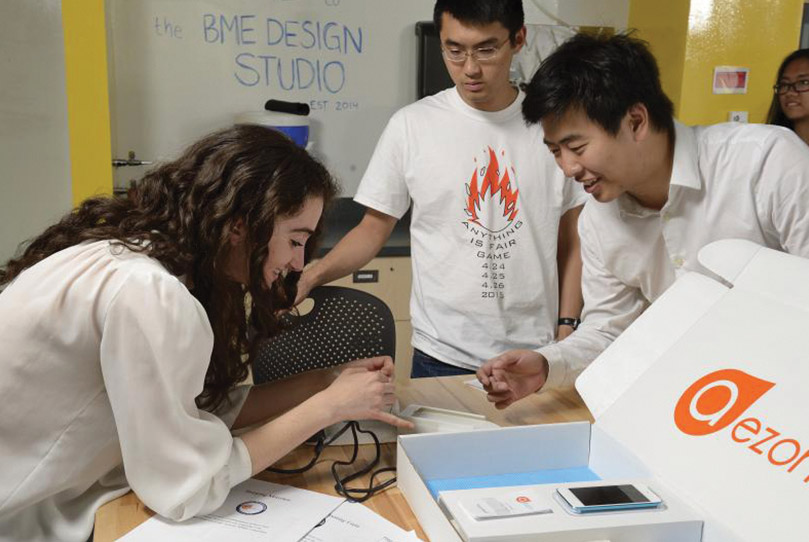
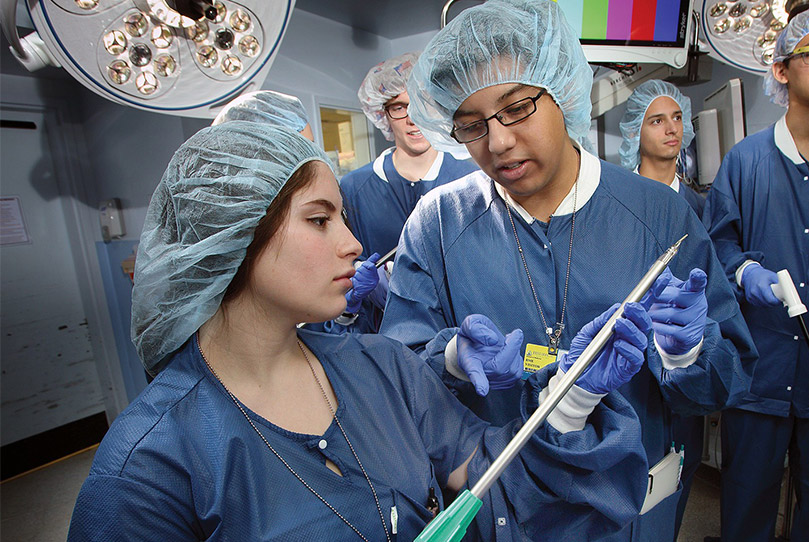
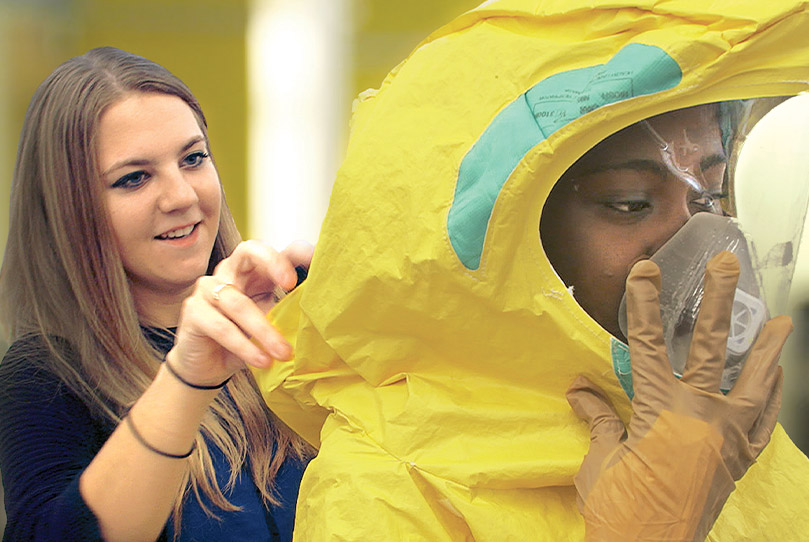
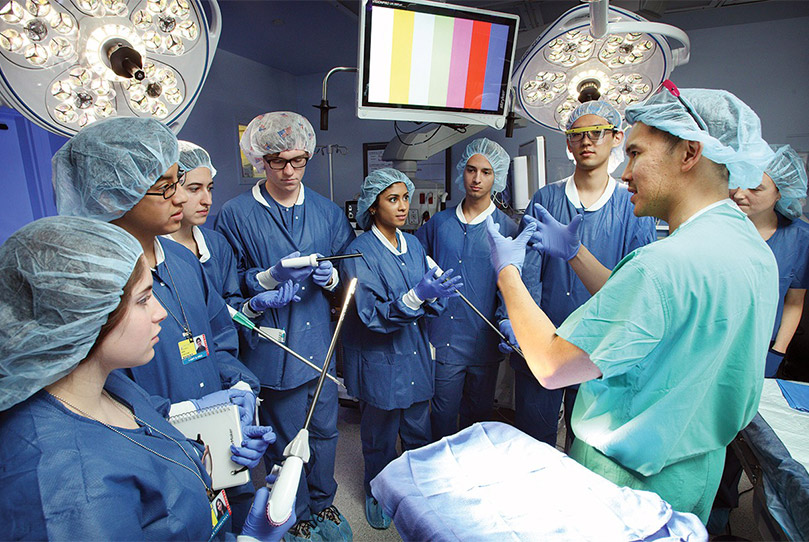
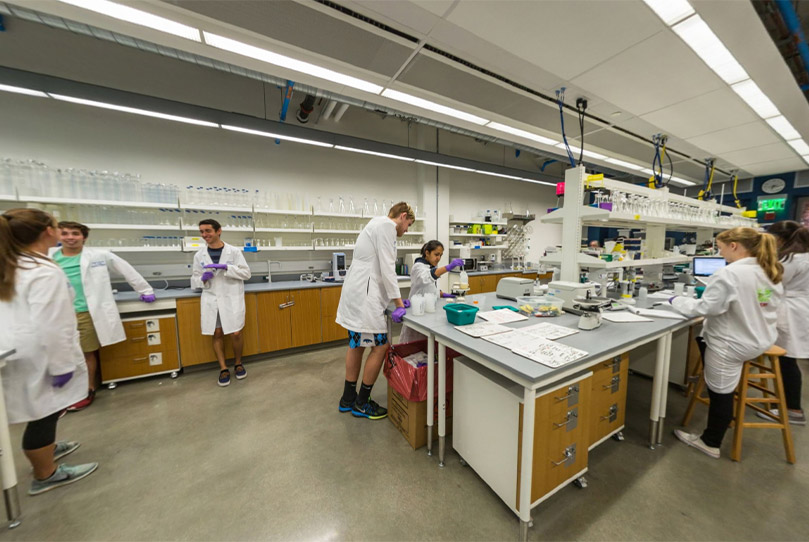
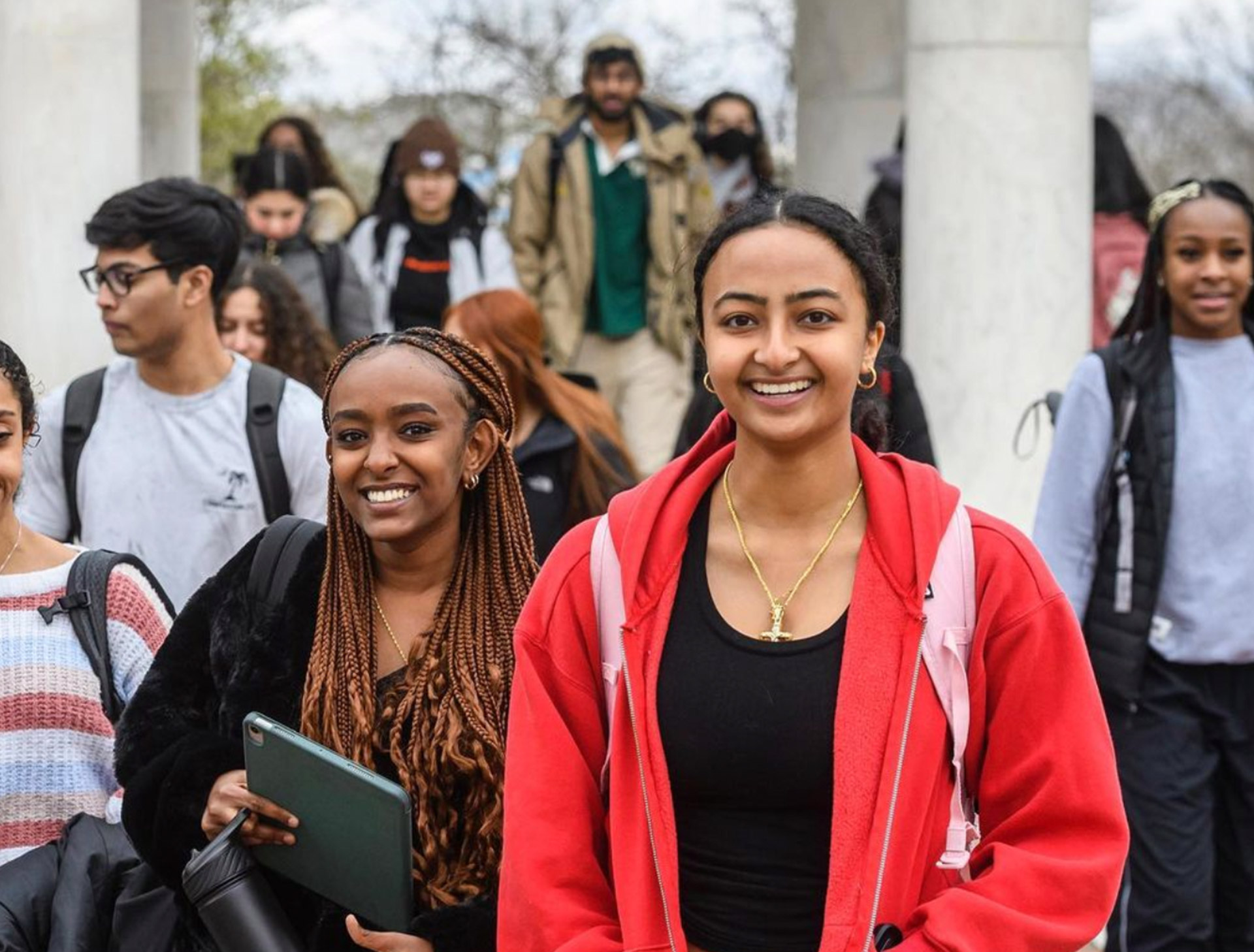
"I get to do research under Dr. Lisa Cooper, one of Hopkins’ Bloomberg Distinguished Professors, who founded The Center for Health Equity. Her research is focused on eliminating health disparities among disadvantaged communities from multiple angles—community activation, health policy, and pilot research."
"Pre-med opportunities are super easy to access. I currently work in a pediatric emergency medicine lab that looks at special needs children and how they respond to stimuli in the hospital setting." – Neha B. '22, Public Health Studies